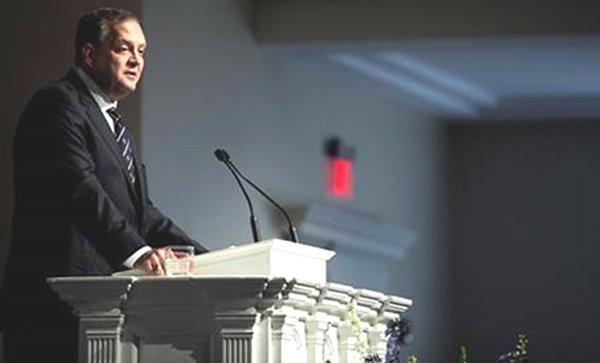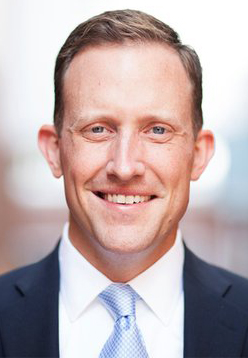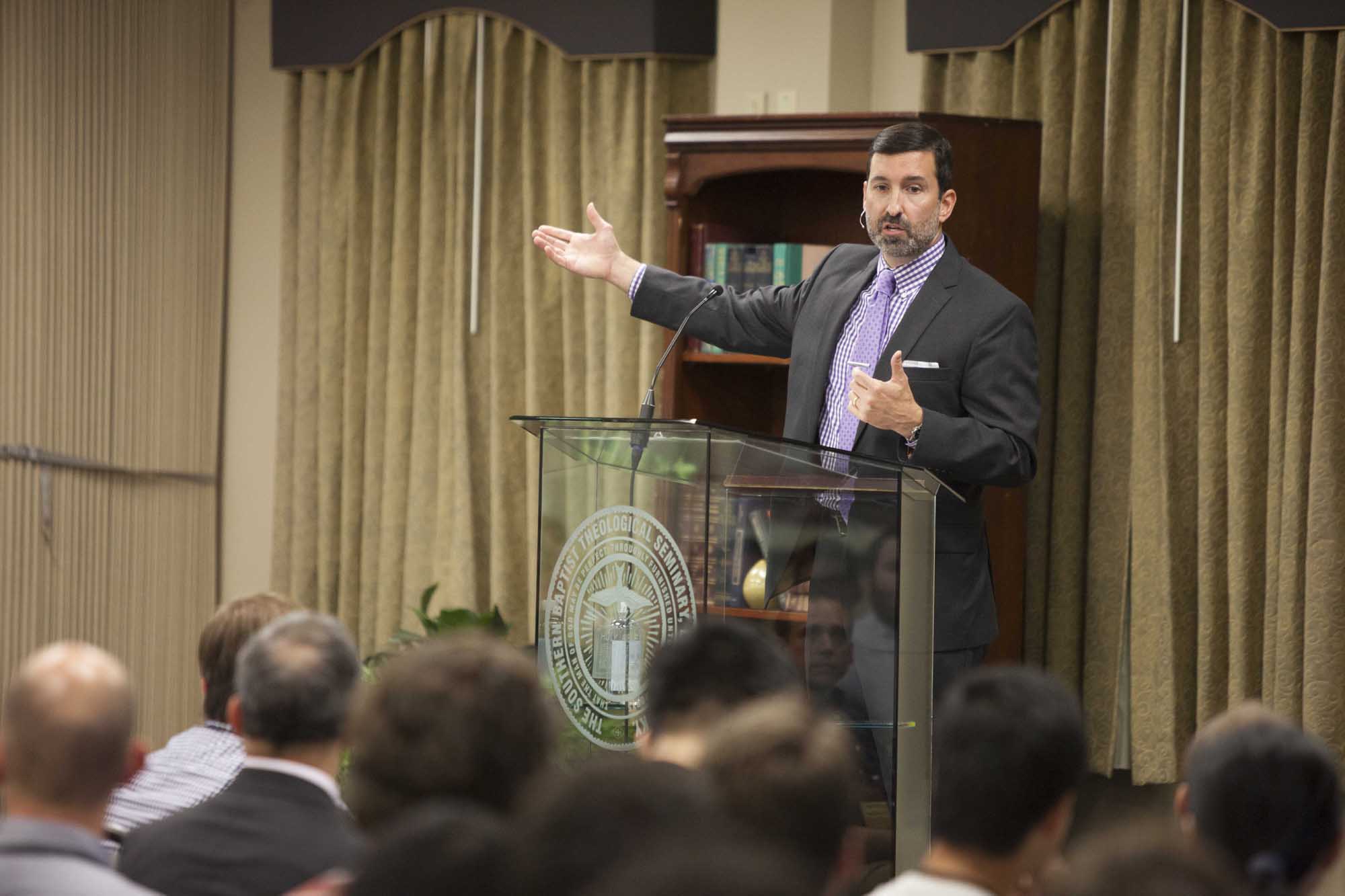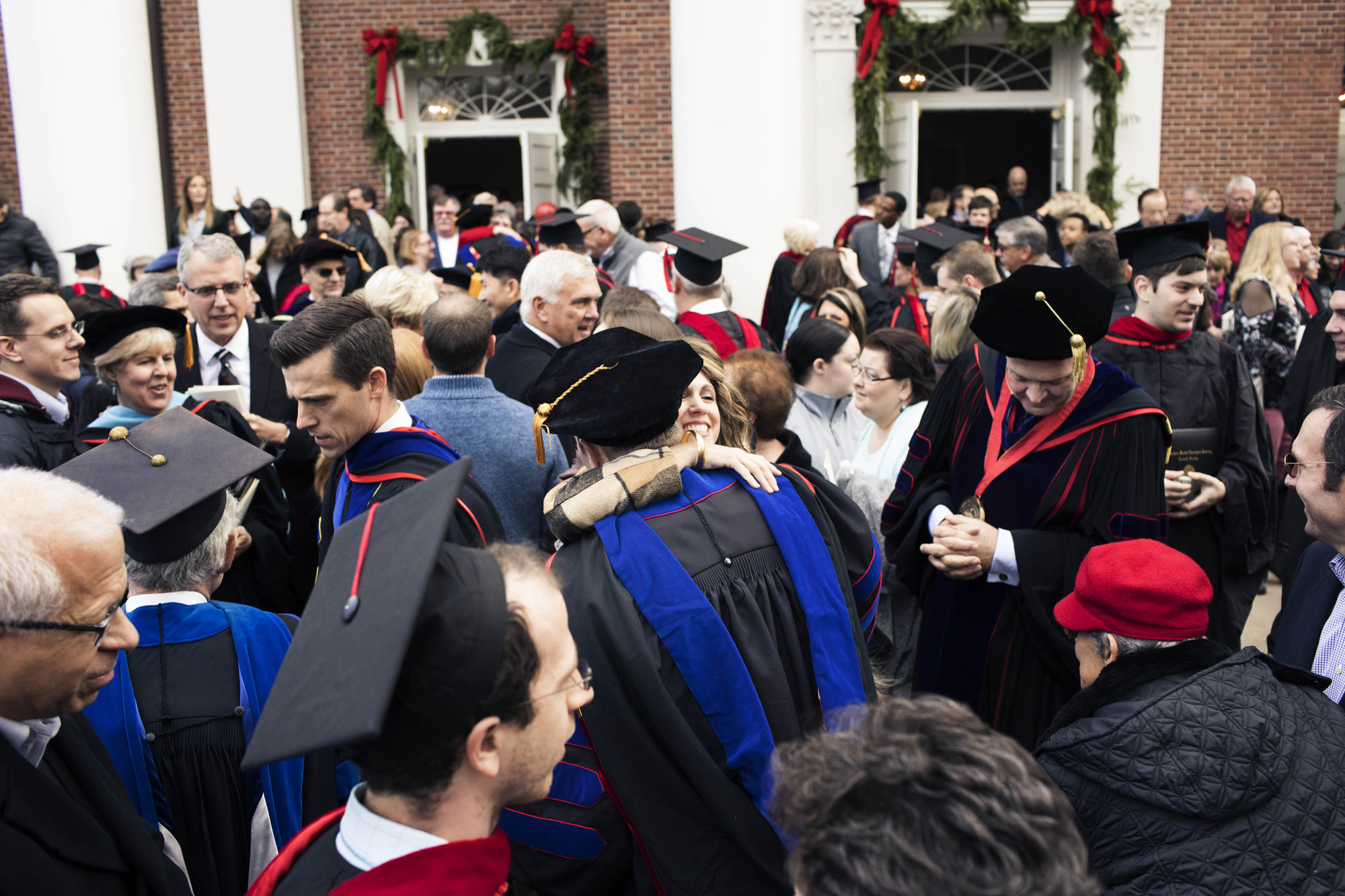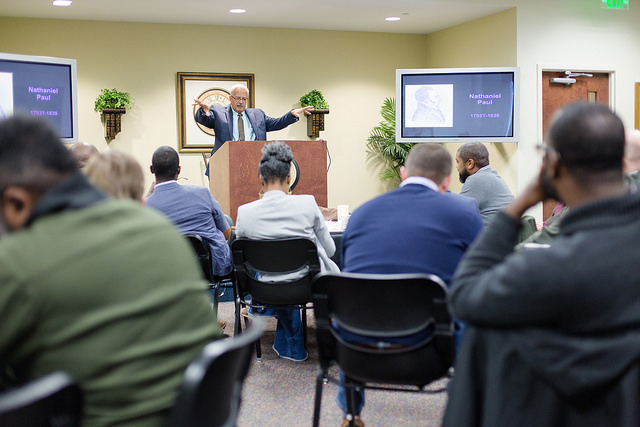
LOUISVILLE, Ky. (BP) — R. Albert Mohler Jr. addressed a broad range of questions from students at the Western Kentucky University in Bowling Green, Ky., November 15. The event was the fourth installment of his Ask Anything Tour, which was previously held at the University of Louisville, the University of Southern California, and the University of Southern California-Los Angeles.
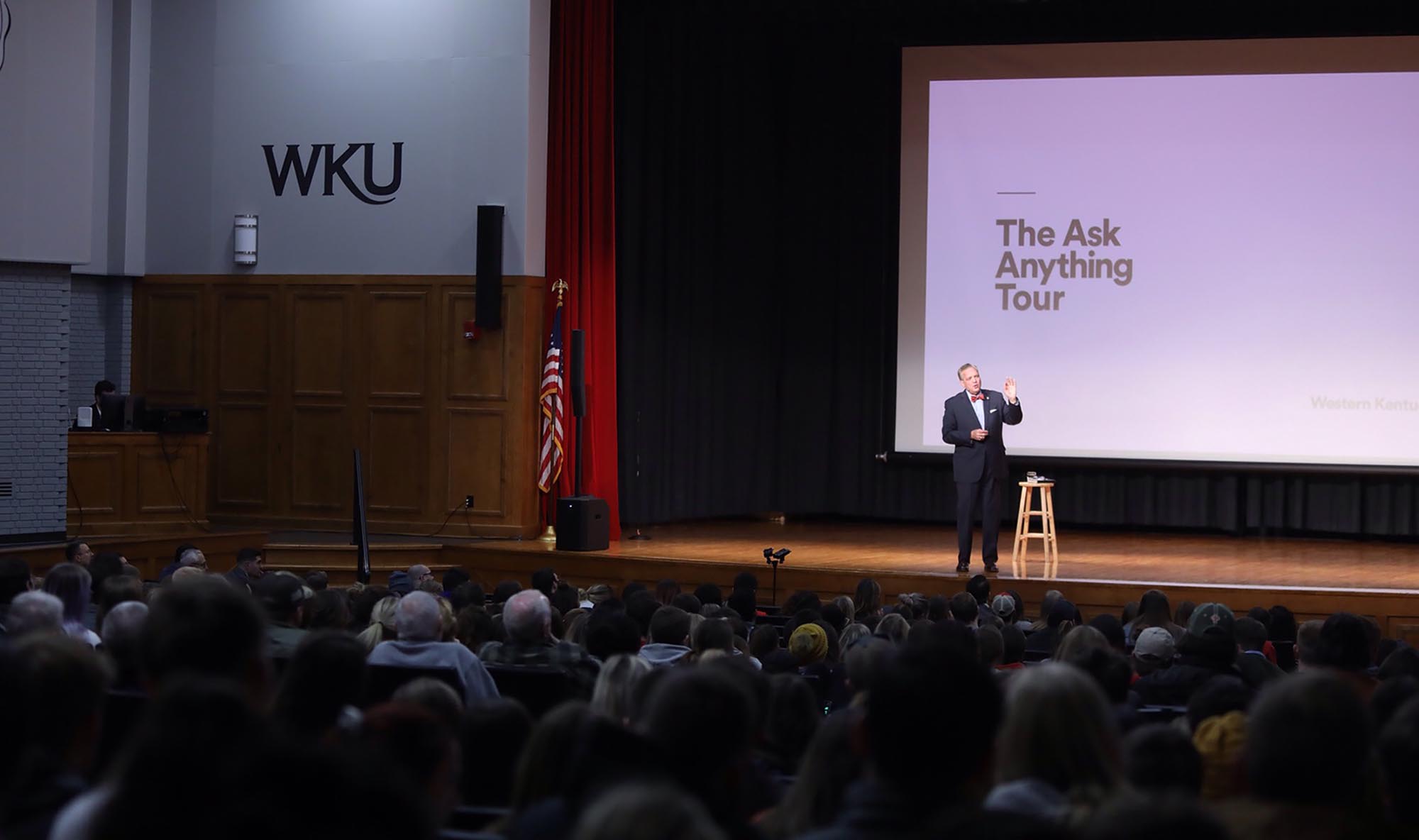 In these Ask Anything Tour events, Mohler, president of The Southern Baptist Theological Seminary in Louisville, Ky., answers college student questions on the topics of faith, religion, and the Bible. He opened the evening with a brief statement about the unique answers to life’s biggest questions from a robust Christian worldview before taking open-mic questions from the student body.
In these Ask Anything Tour events, Mohler, president of The Southern Baptist Theological Seminary in Louisville, Ky., answers college student questions on the topics of faith, religion, and the Bible. He opened the evening with a brief statement about the unique answers to life’s biggest questions from a robust Christian worldview before taking open-mic questions from the student body.
“I’m here in the name of Jesus Christ,” Mohler told 650 gathered students from WKU during the evening. “There’s no reason to remember that I was here; there’s every reason to remember that Jesus saves.”
During his opening statement, Mohler explained that the Christian faith does not shy away from answering hard questions about life, religion, existence, and meaning because asking questions is a fundamental part of being human.
“It is impossible to be a thinking human being and not ask questions. Asking ‘why?’ is a sign of incredible intelligence” Mohler said. “The Christian worldview … is based on the fundamental assumption that there is an answer in Christ. Part of Christian responsibility is to learn how to ask the right questions and even clarify the right questions.”
Everything about explaining human existence ultimately comes down to four key questions, argued Mohler: (1) Why is there something rather than nothing?; (2) What’s gone wrong?; (3) Is there any hope?; and (4) Where is history headed?.
While secular society has their own various ways of answering those important questions, in the history of the Christian church followers of Jesus Christ have offered a series of consistent answers. Everything in the universe exists because it was created by God the Father, and the world has “gone wrong” not because something wrong happened to humanity, but because humanity did something wrong. The problems in the world all go back to human hearts stained by the effects of sin, Mohler said.
Since the world became broken because of human sin, it could only be solved by dealing directly with sin itself, according to Mohler. Hope is not found inside or among human beings; the only hope comes from a rescue outside of humanity in the person of Jesus Christ.
“What we cannot do in achieving the solution to that problem that’s wrong with the world and with me — what we cannot do and could not do — God did,” Mohler said.
Finally, history is headed toward the final completion of the Father’s plan, culminating in the victory of Christ and the consummation of His kingdom. Until then, even his followers must endure suffering, pain and death.
“In this life, we know there are going to be wet eyes and tears until that world that is to come, in which everything is made right,” Mohler said. “We’re longing for that.”
Responding to one question about whether it is unjust for Christians to send missionaries to disrupt other cultures, Mohler said that not only is Christianity intended to be disruptive, but that any morality is inherently disruptive when it confronts immoral human behavior.
Many learned people in secular society believe that cultures are to be respected exactly as they are, and that it’s wrong to disrupt them. While Mohler understands that argument, he argues that no one who affirms it actually believes it, he said. In every culture, there is some tradition or learned behavior that Western people believe must be disrupted for moral reasons.
Someone on an academic campus recently told Mohler that they don’t believe anyone should export any moral principle to any other culture. He replied that the individual had just written an article arguing that female genital mutilation was wrong and must be ended anywhere in the world it appears. Those two claims cannot coexist, Mohler argued.
“I don’t think anyone actually believes that cultures are just to be left alone and not disrupted,” he said. “I think everyone believes that every culture needs to be disrupted — including ours.”
Ultimately, Mohler said, Christianity’s most basic teaching — loving God and loving one’s neighbor — is dramatically disruptive.
“There is no more counter cultural moral principle on earth than that we are to love our neighbor and that everyone is our neighbor,” Mohler said. “There are other belief systems that have said, ‘You are to love your neighbor as yourself,’ but Christ said there is no one who is not our neighbor. That is very disruptive, and Christianity is a belief system that disrupts all levels of society.”
Rather than devaluing culture, Christianity values all the cultures of the world as so important that there will be people from every tribe, tongue, people, and nation in the Kingdom of Jesus Christ, according to Mohler.
“That will be to God’s glory,” he said. “The Christian worldview is transformative, and the Gospel of Jesus Christ is revolutionary — it will bring change wherever it comes, but it doesn’t eradicate culture. God wants to be glorified in every language.”
Mohler addressed numerous other questions during the evening, including queries about the end times, theological triage, angels, women in ministry, God’s sovereignty and human responsibility, and human sexuality.
“I am telling you that God is there, and He is not silent,” Mohler said, closing the evening with a clear Gospel presentation. “[He is] the only plausible explanation for why we are here, why you and I exist, the consciousness we share, why we are creatures of hope and hunger and need, and why we yearn for satisfaction.
“I want to commend you tonight to consider the claims of Jesus Christ. Consider your own heart and the conversation you have with your inner self, and honestly ask yourself what it is that you really know you really need. I want to tell you that you may define it in many different ways, but the Bible defines it exactly right: You need the forgiveness of sins and you need your relationship with the God who loved you and created you made right.”
Video from the WKU event, as well as information about future tour stops, will soon be available at askanythingtour.com.
–30–

